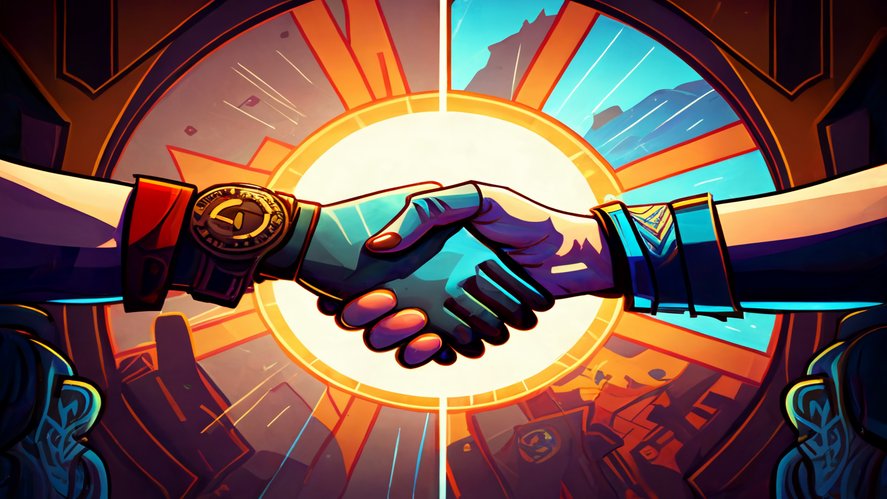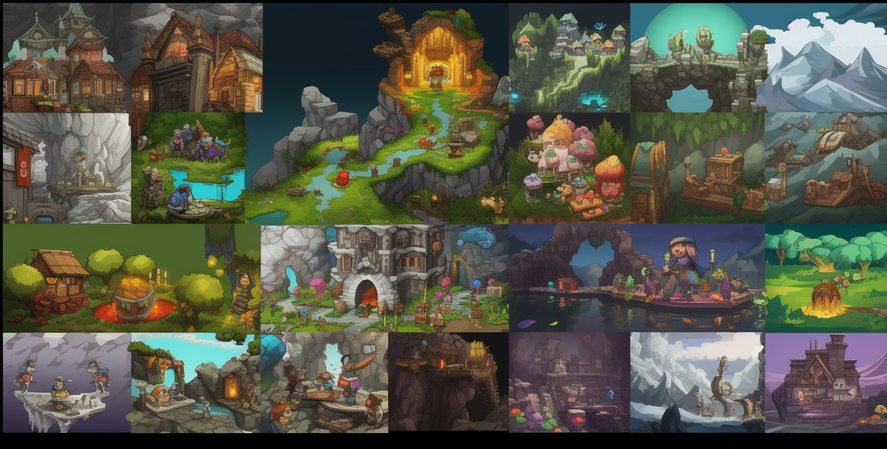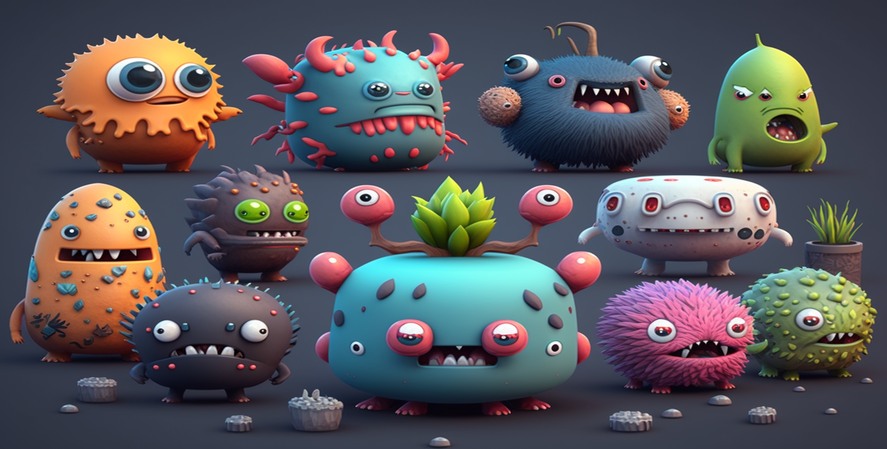Are you creating an indie game and looking for suitable indie game publishers? If so, you’ve come to the right place. This article covers pertinent topics for indie game development such as defining an indie game, its publisher, and the roles and responsibilities of these indie game publishers.
Definition of Indie Game
First off, let’s define what is an indie game. Indie games (also known as “independent games” or “indi-games”) are video games that are developed independently of major gaming studios and publishers. Likewise, they can also be created by a single person or small teams of people working together.
Indie games are often characterized by their unique designs, innovative gameplay mechanics, and lack of budgets compared to AAA titles. Here are some of the most popular indie games: Stardew Valley, Undertale, and Super Meat Boy.
[If you are curious to know more about indie games, explore our blog post on “What is an Indie Game?” and uncover the secrets behind these unique and innovative gems.]
Strategies for Indie Game Developers to Secure the Right Publisher
In discussing the significance of discovering the appropriate indie game publishers for your game, we must first understand what constitutes an indie game. Optimal indie game publishers can assist with marketing, promotions, as well as distribution and sales on multiple platforms.
A good indie game publisher will understand the goals and needs of your project, moreover give it the attention it deserves in order for it to become successful.

So how do you find the right publisher for your indie game? Here are some tips:
1. Research Potential Indie Game Publishers
Researching potential indie game publishers is key when it comes to finding the perfect match for your game. Look for publishers that have experience with your game genre or similar games and make sure their mission statement and values align in the same way with your vision for your game. Make sure to read up on reviews and press coverage of any publishers you’re considering. Certainly, this can give you valuable insights into their working practices, as well as how they’ve handled previous projects.
2. Align Your Goals With Theirs
When considering partnering with a publisher, make sure their goals align with yours. If you’re looking to create an indie game that’s focused on narrative storytelling, work with a publisher that specializes in publishing games with strong narratives. Similarly, if you’re creating a game with an emphasis on multiplayer gameplay, partnering with a publisher that has a track record of successful multiplayer titles can be a wise choice.
It’s also important to consider if the publisher has experience working with developers similar to you – this could simplify negotiations and ensure everyone involved is on the same page throughout the process.
3. Match Game Niche To A Publisher’s Expertise
Matching the specific niche of your game to a publisher’s expertise ensures they understand the target audience better and can effectively promote the game better than someone who doesn’t have as much knowledge about it.
By aligning your game with a publisher that specializes in your specific niche, you’ll be more likely to receive the support and expertise needed to succeed in a competitive market. Additionally, working with a publisher that shares your creative vision and values can lead to a more productive and rewarding partnership.
Before committing to a publisher, research their portfolio, read reviews from other developers they’ve worked with, and assess their communication style to ensure they’re the right fit for you and your game.
It also increases chances of success since they’ll have experience dealing with similar titles before. When narrowing down potential publishers look at those which specialize in puzzle games (if it applies) or other genres/themes related specifically to yours – this will without a doubt, give you better assurance that they know what they’re doing when handling projects like yours.
4. Contact The Publisher
Once you’ve done your research and found a potential match, reach out to them directly and ask if they’re interested in publishing your game. Be prepared to provide a pitch, game demo, or prototype for them to look at so they understand what you’re trying to achieve.
To ensure your pitch is effective, consider tailoring it to the publisher’s specific interests and strengths. Furthermore, it’s important to be professional, concise, and passionate when reaching out. Make sure to introduce yourself and your game in a clear and compelling way, highlighting what sets it apart from other titles in the market.
You can also include information about your development team, budget, and timeline to give the publisher a better understanding of your project. In addition, be open to feedback and suggestions from the publisher, as they may have valuable insights that can help improve your game.
Once you’ve made contact, follow up regularly to stay top-of-mind and build a strong relationship. A well-executed pitch can be the start of a fruitful partnership that leads to a successful indie game launch.
5. Negotiate The Contract with the Indie Game Publishers
When negotiating terms of the contract, make sure both parties are getting what they want out of the deal – this could include money, promotion opportunities, or other services from the publisher etc.. Ensure any agreement is well-defined and legally binding if possible so both parties understand their rights clearly.
To ensure a successful partnership, negotiating the terms of the contract is a crucial step. Firstly, it’s important to establish a clear understanding of each party’s expectations and objectives.
Once those are established, both parties should determine what they want to gain from the partnership. For example, the publisher may provide financial support, promotion opportunities, or additional services such as marketing or localization. In turn, the developer may offer exclusive publishing rights, access to intellectual property, or creative control.
When negotiating the contract, it’s crucial to be transparent and realistic about what you can offer and what you expect in return. Use clear and concise language to avoid any misunderstandings or confusion. Any agreements made should be well-defined, with legal advice sought where necessary, to ensure both parties understand their rights and obligations.
It’s also worth considering the potential risks and contingencies that may arise during the partnership. Outline how these will be addressed in the contract, such as by including clauses on intellectual property rights, termination conditions, or dispute resolution procedures. By negotiating a contract that is fair and mutually beneficial, you can set the foundation for a successful partnership with your indie game publisher.
6. Consider Promotion Strategies
When selecting a publisher, make sure to consider their strategies for promoting your game. Take a look at how they’ve promoted other titles in the past and see if it aligns with your vision for your game. Make sure you understand what kind of promotion and advertising resources the publisher has access to before making any agreements.
Furthermore, it’s important to discuss with the publisher what kind of promotion strategies they plan to implement for your game. Will they be focusing on influencer marketing, social media campaigns, or traditional advertising? Do they have any partnerships with media outlets or streaming platforms that can help get your game in front of more eyes? By asking these questions and discussing their promotional approach, you can ensure that you and the publisher are on the same page regarding your game’s marketing strategy.
In addition, consider the publisher’s level of involvement in the promotion process. Some publishers may take a more hands-on approach, while others may expect the developer to take on more responsibility in promoting the game. Make sure you understand what kind of support the publisher will provide throughout the promotion process, and whether they will be actively involved in helping you secure coverage and drive sales.
Ultimately, selecting a publisher with a strong promotion strategy can make all the difference in the success of your indie game. By partnering with a publisher who is aligned with your goals and values, and who has a proven track record of successful promotion and marketing, you can set your game up for success and help it stand out in a crowded market.
7. Don’t be Afraid to Ask Questions
Don’t be afraid to ask potential publishers questions – find out more about their experience in the industry, what services or resources they provide, what their current portfolio looks like etc. This will ensure you have all the information you need when considering whether they are suitable as a partner or not.

Moreover, asking questions can also help you gauge the publisher’s level of enthusiasm for your game and their willingness to invest time and resources in its success. Additionally, understanding their process and expectations can help you set realistic goals and timelines for your development cycle.
To make the most out of your interactions with potential publishers, it’s important to prepare a list of questions ahead of time. Consider asking about their marketing and distribution strategies, their approach to community engagement, and their plans for post-launch support. Furthermore, don’t hesitate to ask for references from other developers they’ve worked with to gain insight into their working style and communication skills.
Asking questions not only helps you make an informed decision, but it also demonstrates your professionalism and commitment to creating a successful game. So, don’t shy away from seeking clarification and insights that can help you find the right publisher and achieve your goals.
8. Ask Other Developers For Advice
Finally, don’t hesitate to reach out to other developers and ask them for advice when it comes to finding the right publisher for your indie game. Joining online communities or attending game development events can connect you with experienced developers who can share their wisdom and guidance. They may have valuable insights on what to look for in a publisher, how to negotiate deals, and how to avoid common pitfalls.
Moreover, they may know of some great publishers that could be perfect for your project but are not widely known in the industry. In this way, knowing people who have been through similar experiences can provide valuable connections and help guide you on this journey towards getting published!
Why Choosing the Right Niche Matters for Your Indie Game
Choosing the right genre/niche for your indie game is crucial when it comes to finding a suitable publisher. Furthermore, most indie game publishers specialize in certain types of games and will have specific requirements for what they expect from any indie games they sign. For example, RPG publishers might require an expansive storyline or branching dialogue options whereas a platformer publisher may be looking for precise controls and unique levels.

Researching the types of games each publisher specializes in can help you narrow down your list. As a result, you will certainly find the perfect match!
When it comes to indie games, there are a number of different niches that developers can choose from. These include platformers, adventure games, puzzle games, roguelikes, RPGs, idle clicker games, and many more.
Commonly Released Indie Game Genres
Indie games are a diverse and rapidly-growing genre of video games that offer a wide range of gameplay experiences. Some popular types of indie games include:
- Platformers – platformer games involve the player navigating their character through dangerous environments by jumping on platforms and avoiding obstacles. Popular examples include Celeste and Hollow Knight.
- Adventure Games – adventure games usually rely on puzzle solving concepts besides storytelling elements to progress the narrative of the game. Night in the Woods is an example of an adventure game.
- Puzzle Games – puzzles require players to think strategically in order to uncover solutions such as The Witness or Baba Is You.
- Roguelikes – roguelike games challenge players with random levels and scenarios, therefore requiring them to make quick decisions in order to advance in the game. Notable indie titles include Enter the Gungeon and Dead Cells.
- RPGs – role-playing games are story-driven experiences that allow players to create characters that they can customize over time using various stats and abilities throughout their journey such as Undertale or Stardew Valley.
- Idle Games – idle games are a relatively new subgenre of simulation games that let players automate processes and progress through the game without much input. Players can simply check in on their game periodically to activate upgrades and move to higher levels. Popular examples include Cookie Clicker, Clicker Heroes, and Adventure Capitalist.
- Multiplayer Games – multiplayer games are a genre of video games that allow multiple players to compete or collaborate with each other in real-time. Multiplayer indie games provide players with the opportunity to socialize, make new friends, and compete with each other for bragging rights or in-game rewards. Some examples of popular multiplayer indie games include Among Us, Terraria, and Minecraft.

List of Popular Indie Game Publishers by Niche
Here are some popular indie game publishers with their corresponding niches that are worth considering:
Platformers:
| Game Publisher | Niche description |
| Yacht Club Games | Publisher of indie games with a focus on platformer and action genres, often featuring pixel art graphics and unique gameplay mechanics. |
Adventure Games:
| Game Publisher | Niche description |
| Annapurna Interactive | Publisher of narrative-driven games with a focus on emotional and thought-provoking storytelling. |
| Daedalic Entertainment | Publisher of indie games with a focus on adventure and story-driven gameplay, often featuring unique art styles and complex narratives. |
| Modus Games | Publisher of indie games with a focus on action and adventure genres, often featuring cinematic storytelling and immersive gameplay mechanics. |
| Versus Evil | Publisher of indie games with a focus on story-driven experiences and unique gameplay mechanics, often featuring RPG and adventure genres. |
| Ysbryd Games | Publisher of indie games with a focus on narrative-driven experiences and immersive storytelling, often featuring unique art styles and emotional themes. |
| Zoink Games | Publisher of indie games with a focus on immersive and atmospheric experiences, often featuring unique and quirky gameplay mechanics. |
Puzzle Games:
| Game Publisher | Niche description |
| Digital Dreams Entertainment | Publisher of indie games with a focus on puzzle and platformer genres, often featuring unique and challenging gameplay mechanics. |
Rougelikes:
| Game Publisher | Niche description |
| 11 bit studios | Publisher of indie games with a focus on survival and strategy genres, often featuring unique gameplay mechanics and thought-provoking themes. |
| Iceberg Interactive | Publisher of indie games with a focus on strategy and simulation genres, often featuring complex gameplay mechanics and realistic simulations. |
| Kasedo Games | Publisher of indie games with a focus on strategy and management genres, often featuring deep and complex gameplay mechanics. |
| Rebellion | Publisher of indie games with a focus on action and shooter genres, often featuring immersive and realistic gameplay mechanics. |
| tinyBuild | Publisher of indie games with a focus on fast-paced action and horror genres, often featuring unique and challenging gameplay mechanics. |
RPG:
| Game Publisher | Niche description |
| Versus Evil | Publisher of indie games with a focus on story-driven experiences and unique gameplay mechanics, often featuring RPG and adventure genres. |
Simulation:
| Game Publisher | Niche description |
| Iceberg Interactive | Publisher of indie games with a focus on strategy and simulation genres, often featuring complex gameplay mechanics and realistic simulations. |
| Kasedo Games | Publisher of indie games with a focus on strategy and management genres, often featuring deep and complex gameplay mechanics. |
| Team17 | Publisher of indie games with a focus on strategy and simulation genres, often featuring unique and innovative gameplay mechanics. |
Idle Clicker Game:
| Game Publisher | Niche Description |
| Playsaurus | Publisher of indie games with a focus on idle and clicker genres, often featuring addictive gameplay and incremental progress mechanics. |
Multiplayer:
| Game Publisher | Niche Description |
| Devolver Digital | Publisher of independent games with a focus on the unusual, often featuring unique and innovative gameplay mechanics, and unconventional storytelling. |
| Raw Fury | Publisher of indie games with a focus on atmospheric and immersive experiences, often featuring unique art styles and soundtracks. |
Conclusion
In conclusion, finding the right publisher for your indie game can seem daunting, however, with some research and careful consideration it is possible to find a reliable partner. Make sure you take the time to research potential publishers, align your goals with theirs, contact them directly, negotiate the contract and consider matching your game’s niche to their expertise.
Additionally, factor in promotion strategies, don’t be afraid to ask questions and reach out to other developers for advice.
You might be wondering if you really need to work with a game publisher. While it’s true that some indie games have achieved great success without a publisher, there are many reasons why working with a publisher can be a smart choice. In fact, we’ve also put together a list of 10 reasons why you should consider partnering with a publisher. Check it out here: “Here Are 10 Reasons You Should Work With a Game Publisher“.
Overall by following these steps you will be able to find the perfect publisher for your game!

